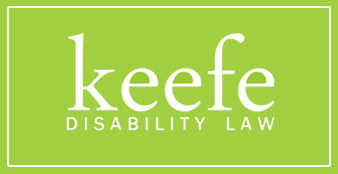Living with post-traumatic stress disorder (PTSD) can be challenging. From severe anxiety to intrusive flashbacks, PTSD can disrupt your life and may create problems maintaining a normal daily routine. Sometimes, those who suffer from PTSD find it difficult to hold a job or function normally in social situations. If your PTSD symptoms have become so debilitating that they prevent you from working, you may be entitled to receive Social Security (SS) disability benefits. However, because proving your PTSD to the Social Security Administration (SSA) often involves a lengthy and complex application process, the representation of a knowledgeable and experienced disability attorney can be helpful.
Understanding PTSD
PTSD is an anxiety-related mental illness that can develop after a person experiences a particularly frightening or traumatic event—usually one with serious potential for injury or death. And people who suffer from PTSD can often feel afraid, anxious, and stressed even if the danger no longer exists.
People with PTSD can experience a wide range of symptoms that may make carrying out everyday activities more difficult. These symptoms include:
- Severe anxiety
- Flashbacks
- Intrusive thoughts of the traumatic event
- Extreme fear
- Anger or irritability
- Feelings of guilt or shame
- Emotional detachment
- Poor self-esteem
- Problems with memory and concentration
- Tendency to be easily startled
- Self-destructive behavior
- Trouble sleeping
Who Can Develop PTSD?
While most people associate PTSD with veterans of war, anyone who has gone through a particularly traumatic experience can potentially develop the disorder. In addition to military combat, other common traumas that can result in PTSD include:
- Serious car accidents
- Physical, sexual, or psychological abuse
- Rape
- Assault
- Heart attacks
- Other serious medical traumas
- Natural disasters (such as fires, hurricanes, earthquakes, or tornadoes)
Most people go through at least one traumatic experience during their lifetime, and while these events can leave the victim feeling shocked, stressed, and depressed, not everyone who experiences a trauma will develop PTSD. Differences between PTSD and other types of trauma-related stress can occur in both the duration and severity of symptoms. Negative feelings and behaviors caused by trauma-related stress often fade over time; however, for sufferers of PTSD, symptoms can persist for months or years and interrupt daily activities.
Available Treatments for PTSD
Currently, there is no cure PTSD, but patients have a wide variety of treatment options to help manage their condition. However, these treatments can vary in their effectiveness, and doctors may sometimes recommend a combination of treatments. Common treatments for PTSD include:
- Counseling
- Cognitive-behavioral therapy
- Psychotherapy
- Antidepressant medications
- Anti-psychotic drugs
- Eye movement desensitization and reprocessing (EMDR)
Applying for SS Benefits
When applying for SS disability benefits for PTSD, there are two ways you can meet the SSA criteria for approval. The first way is to satisfy the requirement for an anxiety-related disability by providing documentation to show that you suffer from nightmares, intrusive memories, or disruptive flashbacks that cause you extreme emotional distress and interfere with your ability to concentrate, perform day-to-day activities, or participate in social situations.
The second way to be approved for benefits is to apply for a medical-vocational allowance, which indicates that even though your symptoms didn't meet the SSA's criteria for an anxiety-related disability, they're still serious enough to prevent you from working. To pursue the medical-vocational allowance, you need to provide the SSA with a Residual Functional Capacity (RFC) form completed by the physician who treats your PTSD. This form discusses your diagnosis; cites your symptoms; and assesses your ability to follow a regular routine, concentrate on tasks, comprehend and follow directions, interact appropriately with others, make occupation-related decisions, and have acceptable workplace attendance.
Are You Looking for a Social Security Disability Attorney in Boston, MA?
If you are looking to apply for social security disability, you need to speak with an experienced social security disability lawyer as soon as possible. Please contact us online or call our Natick Office directly at 508.283.5500 to schedule your free consultation.
|
Related links: |


